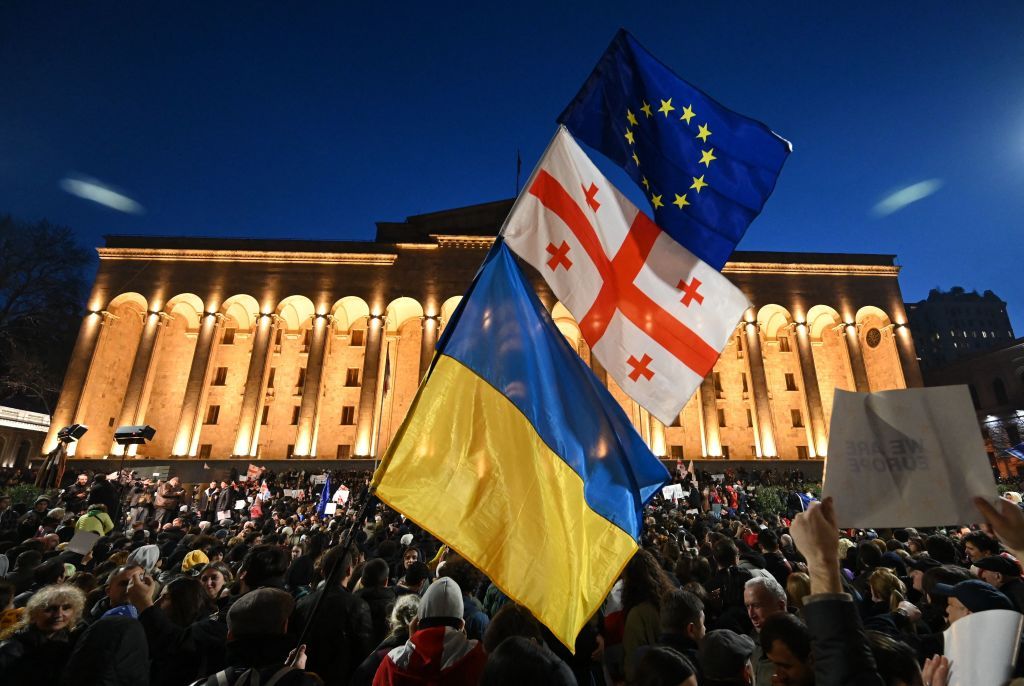EU's ambassador to Georgia says foreign agents bill 'incompatible' with European values

Georgia's revived foreign agents law is "incompatible" with European values, said Pawel Herczynski, the EU's ambassador to Georgia, in comments to the press on April 11.
The law, first introduced in 2023 by the ruling Georgian Dream party, would require organizations that receive foreign funding to be labeled as such. Widespread demonstrations broke out in protest to the proposed law, and it was eventually abandoned in March 2023.
Despite promises not to bring the law back, Georgian Dream lawmaker Mamuka Mdinaradze announced earlier in April that parliament would try to pass the bill again. The renewed version of the law is almost identical to the previous, albeit with minor cosmetic changes.
"We are seriously concerned. These are legitimate concerns about transparency, which should not be used to justify the restriction of space and the stigmatization of civil society organizations," said Herczynski.
"This bill, as it is now, is incompatible with European norms and European values, and especially in today's context, it will be very difficult for the European Commission to make a positive assessment of the adoption of the law."
The foreign agents law is popularly known in Georgia as the "Russian law" for its similarity to similar legislation in place there.
The revival of the law has been widely criticized across the West and by members of the opposition within Georgia, including by President Salome Zourabichvili, a political foe of the Georgian Dream party.
The European Commission offered Georgia candidate status to the EU in November 2023. If passed, it is widely thought that the foreign agents law will hurt Georgia's chances of entering the bloc.
Large-scale protests have again broken out in the capital Tbilisi against the proposed law.














